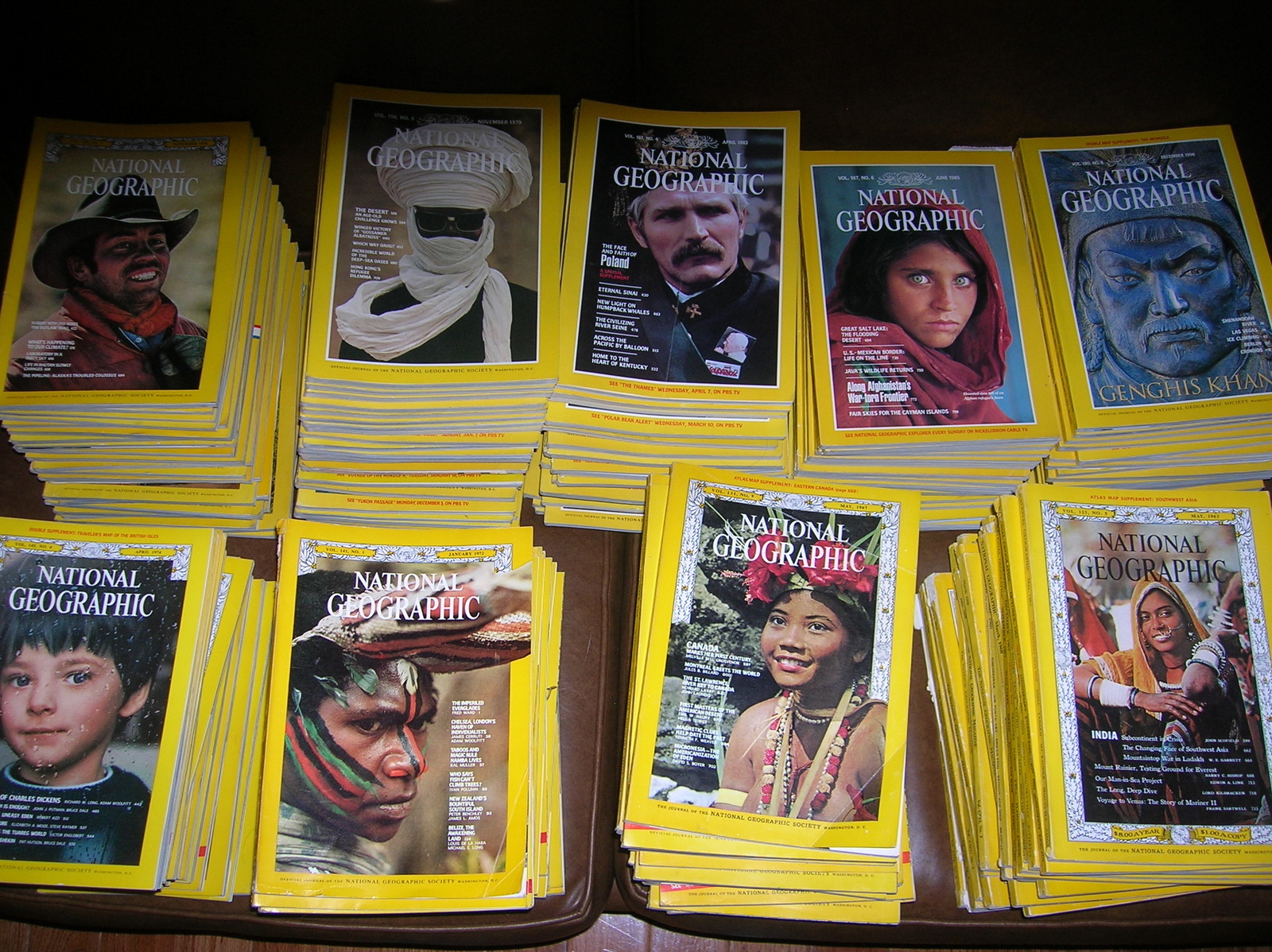On travelogues, and the winding road to ending up where you intended
There was a time, several years ago, when I rarely left the travel essay section of a bookstore. I suspect it began around the time I starting subscribing to National Geographic, and I discovered the art of writing about travel. Reporting on what you ate every day or which monuments you visited is not of value to anyone but yourself really, but telling a story--perhaps the story of a place, or person, or group of people, added depth to your own experience and created a product you could present to others. This is what the journalists who report on culture and history do in that magazine, combining things we inherently find exciting with stories and movements in the modern day that we would not otherwise know about; indeed, this is what makes all great journalism. But somehow this magazine does it best. (Oh and, they occasionally have pretty pictures alongside the stories. Only the most enigmatic produced by any news outlet in the world. That helps too.) I was hooked.
 I felt a rush knowing that there are people whose job this is. There are people who get sent off to report on what's happening in some country or another. Sometimes these people wrote other things, and they usually wound up in the "travel essays" section of any bookstore; so that's where I wound up as well, for about two years. I read maybe a dozen or two of the books on those shelves, not picky about where they took me: France, Vietnam, the Inca Road, India, China, Indonesia, Russia, Cuba. After that though, I began to notice that there were hardly any new books added; the section hardly changed at all, month after month. Not only did I have it memorized, I think I still recognize many of the authors and titles just the same today. The shelf was sufficiently exhausted--it's not a very large section, after all. And beyond the titles I'd already read, the rest kind of bored me: not enough adventure or history, too much "we went here, then here" kind of writing. Or, in fact, too much history or adventure; the trick with good travel writing lies in the perfect balance between all three parts.
I felt a rush knowing that there are people whose job this is. There are people who get sent off to report on what's happening in some country or another. Sometimes these people wrote other things, and they usually wound up in the "travel essays" section of any bookstore; so that's where I wound up as well, for about two years. I read maybe a dozen or two of the books on those shelves, not picky about where they took me: France, Vietnam, the Inca Road, India, China, Indonesia, Russia, Cuba. After that though, I began to notice that there were hardly any new books added; the section hardly changed at all, month after month. Not only did I have it memorized, I think I still recognize many of the authors and titles just the same today. The shelf was sufficiently exhausted--it's not a very large section, after all. And beyond the titles I'd already read, the rest kind of bored me: not enough adventure or history, too much "we went here, then here" kind of writing. Or, in fact, too much history or adventure; the trick with good travel writing lies in the perfect balance between all three parts.
This is exactly around the time I was beginning to realize I hated being a Spanish major in college, and that I did not love learning Spanish. (I want to learn it, and intend to pick it up again, but to devote thousands of dollars and hundreds of hours and earn my degree in it overwhelmingly seemed like a bad choice for me.) And my reading interests were forced beyond the travel section. Towards history, and the same wondrous exploration of the world, but through a different outlet and with a few more analytical, argumentative, and research skills.
Travelogues are plagued with weak writing and sometimes less than accurate historical information and context; however, some of the very best travelogues I've read were written by people who also happen to be historians. (One is Rory Stewart.) It's funny how I saw that elusive job--vaguely that of a person who knows a few things and took a trip and wrote about what they saw there, and then turn that into either an article, a book, or both--and then took several direction changes in my interests, studies, and career path, and wound up arguably in a better position to someday write that article or travelogue than I ever would have achieved trying to "make it as a writer." Looking at it from this end, the things that intrigued me most about cultural diversity, interaction across cultures, linguistics, history, fashion and textiles, political issues, and geography are all still there, and are far more useful to me now than I could have conceived when I first sat on the floor in the corner of a bookstore and read a Karin Muller book.
